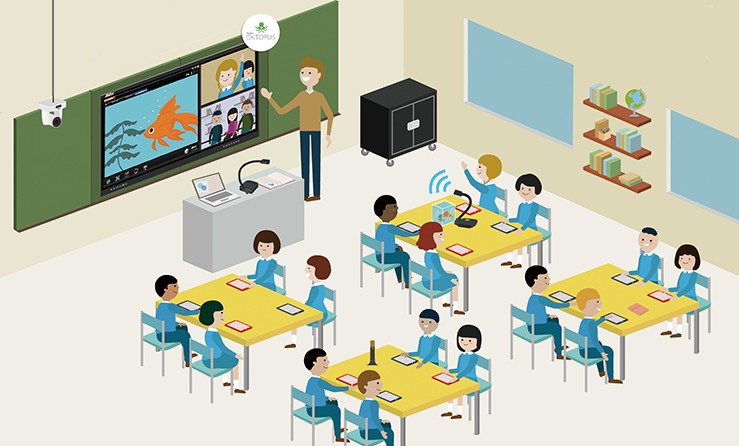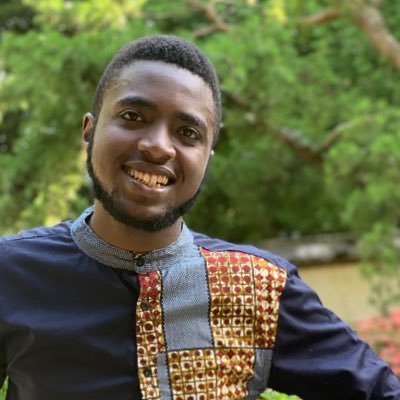 Source: https://www.aver.com/AVerExpert/7-edtech-tools-every-smart-classroom-needs
Source: https://www.aver.com/AVerExpert/7-edtech-tools-every-smart-classroom-needs
Image description: Student learning in a classroom with digital tools.
*Using AI to level the global education disparities by providing personalized learning, mastery-based, and immersive learning in order to provide every student in the world.*
To our knowledge, humans are by far the smartest being to have lived on earth. By their intellect and reasoning abilities, they are able to create different realities and adapt the environments to their needs. Albeit those incredible abilities, they haven’t been able to solve all their problems but they strive to make small progress towards it every day. What if we could get there faster by unleashing the full human potential by 2050?
There are 7.9 billion humans on earth, each one of them with their own unique intellectual and creative gifts. Even though we have a multitude of examples of humans whose genius shined to the eyes of the world such as Mozart, Einstein, Martin Luther King, etc, most humans are not able to channel the full extent of their natural gift during their lifetime. I believe that if every human was to develop their unique gift to the full extent, we would have the equivalent of the likes of Michael Jackson and Stephen Hawkins in their respective fields.
Although factors such as inequality, luck, life circumstances, luck determine how individuals become world-class performers, education is one of the important factors that explain the discrepancy between world-class performers and average performers. The current education system is a one-size-fits-all system that does not care about the intellectual predisposition of the students. There are eight types of intelligence (logical-mathematical, linguistic, spatial, musical, bodily-kinesthetic, interpersonal and naturalistic) and different students learn at different speeds based on their predispositions and previous exposures to the subject. Besides their predispositions, students should be able to learn based on the most effective learning styles (visual, auditory, reading, writing, and kinesthetic) for the task at hand, and only be allowed to progress when they have successfully mastered the lesson to avoid future struggles from shaky foundations.
Unfortunately, the traditional classroom with one teacher is hard to scale in order to provide every student with the personalized learning and mastery-based learning that they would need in order to channel their full potential. On the other hand, delegating the task of education to AI is also not a solution since a lot of learning and mapping of the world comes from interacting with other students and teachers.
For that reason, I propose hybrid classrooms where students are able to learn both from their teachers and other students but at the same time, data generated for every student about their learning styles, intelligence styles, interaction styles, progress is used to develop tailored curriculums, lessons, learning and immersive experiences for every student. Such a system is no longer geared towards comparing the performance of the students against their peers, but in realizing the full potential of every student. The student, the teachers, and the parents would also have access to a comprehensive data portal to better understand the learning progress of the students.
With such a system powered by AI, I am hoping that every student in the world can have the chance to use their unique qualities in order to make the impact they were meant to have. By 2050, the world population will be 9.7 billion and we can have 9.7 billion humans who are all geniuses in their own way.
